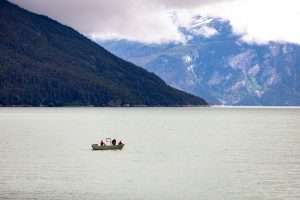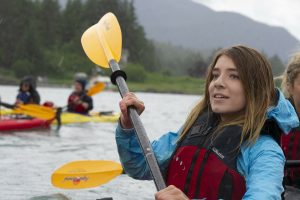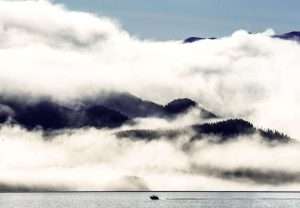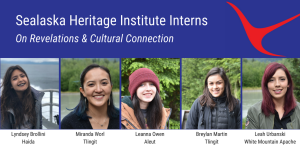Sealaska supports landless legislation recently introduced in 118th Congress

Over the summer, Alaska’s congressional delegation introduced new Landless bills to the 118th Congress: S. 1889 (introduced by Sens. Murkowski and Sullivan) and H.R. 4748 (Introduced by Rep. Peltola and Rep. Pete Stauber (R-MN). Sealaska continues to support the effort, providing funding to Alaska Natives Without Land and advocating for progress with both Alaska and Lower 48 representatives.
“We are closer than ever to legislation being approved in Congress,” said Director Nicole Hallingstad, who hails from the Landless community of Petersburg. “It takes persistent energy, constant effort, and rising support to pass a bill. Our shareholders offer all of that, and more. These five shareholder communities deserve to have this recognition.”
For the past 50 years, Sealaska has worked with community representatives, most recently with the Alaska Natives Without Land campaign, in advocating for the correction of a huge oversight in the Alaska Native Claims Settlement Act (ANCSA): the inexplicable exclusion of five Southeast communities from the bill. ANCSA created regional, urban and village corporations for communities with historical populations of Alaska Native people, but did not include Ketchikan, Wrangell, Tenakee, Petersburg and Haines, leaving these communities without urban corporations to represent them. Since the passage of ANCSA, Indigenous people from these communities have been fighting for the rights and land ownership of their traditional homelands and have not been eligible for ANCSA urban corporation benefits such as dividends, scholarships and support for local priorities. While most Landless Alaska Natives were able to successfully enroll with Sealaska as their regional corporation, their exclusion from ANCSA at the urban corporation level represents a tremendous loss — one that must be righted.
Previous legislation and lobbying efforts have fallen short due to lack of support in Congress and because of historic conflict over the specific land selections that would be given to new ANCSA urban corporations when they are established. However, the current bills include maps and specific land selections by each community.
“This has been a long time coming,” said Jaeleen Kookesh, Vice President of Policy and Legal Affairs, who leads Sealaska’s advocacy on the issue. “The progress made over the past two years is encouraging, and the engagement of shareholders has really kept that momentum going.”
 Leadership from the Southeast Alaska Landless Corporation, along with Sealaska representatives, spent time in Washington D.C. this July advocating for the legislation, which now has bipartisan support in both bodies. Kookesh was among them.
Leadership from the Southeast Alaska Landless Corporation, along with Sealaska representatives, spent time in Washington D.C. this July advocating for the legislation, which now has bipartisan support in both bodies. Kookesh was among them.
“We are hopeful that both bills will see hearings and committee markups this fall, following the August recess,” Kookesh continued. “I am optimistic that we can see this through to the finish line during this session, one way or another. On behalf of all of us at Sealaska, I’m deeply appreciative of the action and support of Senators Murkowski and Sullivan along with our newest representative, Congresswoman Peltola.”
Although advocates have been lobbying for recognition and inclusion since ANCSA’s initial passage, legislation has not received enough Congressional support to ensure passage. However, last session’s legislation, Senate bill 3269 (the Unrecognized Southeast Alaska Native Communities Recognition and Compensation Act sponsored by Alaska Sen. Lisa Murkowski) advanced further in the legislative process than any other attempt in the last 50 years.
“Our Landless representatives have worked for years within our 5 communities to gain support,” said Hallingstad. “We’ve listened. We’ve made adjustments to our land selections. We’ve assured ongoing public recreation access to those lands. It is now far past time to get these bills through Congress.”
Alaska Natives Without Land provides regular updates on Facebook, Twitter and Instagram as well as on its website, highlighting updates in real-time along with opportunities for shareholders, descendants and other allies to advocate for landless communities.
“The wind is at our back,” Hallingstad said. “After so long at this process, the Landless now have impressive community, regional, national and Congressional support. We are more hopeful than ever that legislation will pass in this 118th session before the end of 2024.”
Find more information at https://www.withoutland.org/.










 Previous
Previous